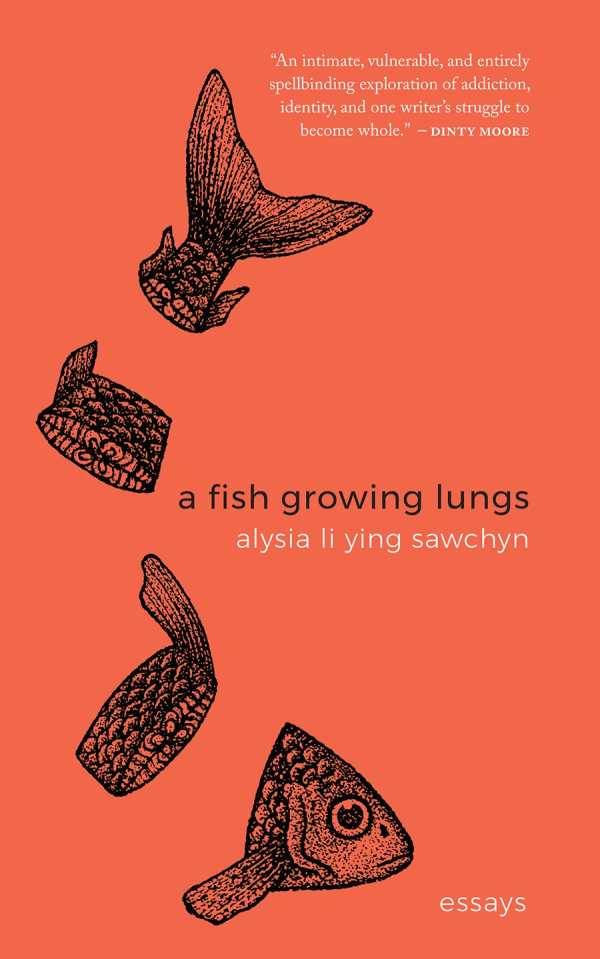
A Fish Growing Lungs
Essays
Specificity has a way of creating potency, and in Alysia Li Ying Sawchyn’s essay collection A Fish Growing Lungs, the power of a well-chosen detail is apparent. Intertwining anecdotes and diaristic, poetic reflections are used to explore the constructs of mental health, mental illness, and diagnosis.
Though it is ostensibly a series of essays, because of the linked quality of the book’s stories, it toes the line of a memoir. Each essay is a chapter of a cohesive whole, focusing on a different time period of Sawchyn’s life, shining light in through a new angle.
In her intimate portraits of her own mental health and misdiagnosis, Sawchyn questions the way that we approach mental health. “Inheritance” explores the tenuousness of guessing whether our ancestors experienced mental health symptoms, while “Deep Sea Creatures” presents the malleability and fallibility of the DSM-5. The spellbinding “Withdrawal” includes a timeline of Sawchyn’s psychiatric treatment history, its long-running diagram clinically analyzing the practice of clinical analysis.
Notes on a history of cocaine addiction are interwoven with two tales of a hike up Old Rag. Nonsuicidal self-injury is illuminated through stories of retreats for individuals in recovery. In a later chapter, Sawchyn’s process of relearning herself after her diagnosis is encapsulated in Thursday nights with friends at a nightclub. The open, raw edges of the collection articulate experiences that cannot possibly be encompassed in clinical language, or through the tropes of a “very special episode.”
The authority of diagnosis and of diagnosticians is difficult to question without a behind-the-scenes peek into the lack of objectivity of the system. This unveiling of the system, even a little bit, is empowering stuff. Intimate, thoughtful, and artful, A Fish Growing Lungs is a captivating collection that invites a conversation about how we approach human suffering.
Reviewed by
Jessie Horness
Disclosure: This article is not an endorsement, but a review. The publisher of this book provided free copies of the book to have their book reviewed by a professional reviewer. No fee was paid by the publisher for this review. Foreword Reviews only recommends books that we love. Foreword Magazine, Inc. is disclosing this in accordance with the Federal Trade Commission’s 16 CFR, Part 255.
